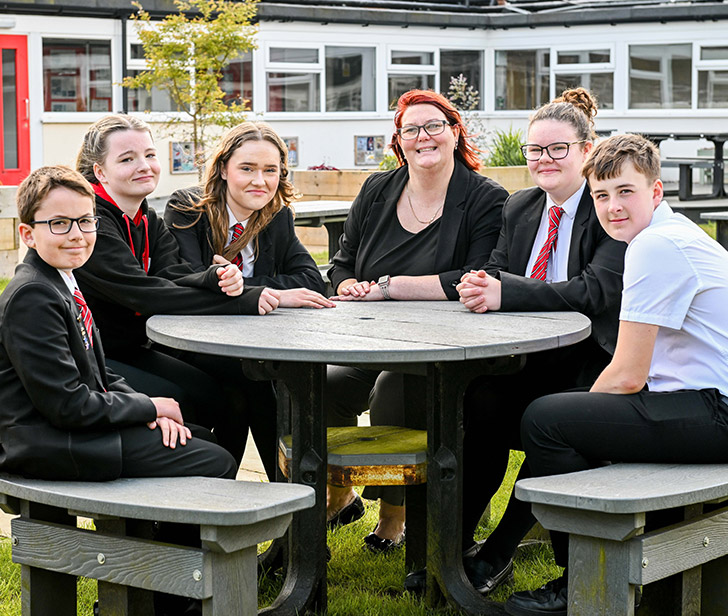ICT
1. Rationale
Currently technology is becoming a centre point of our day to day lives. Studying Computing at Kirton Academy helps our students develop skills that are required in both current and future jobs in the modern, digital world that we are currently living in.
2. Aims
Computing isn't all about computers, it takes a broader approach and focuses on the way in which digital information is communicated. Sure, computers still play a big part, but Computing also looks at how devices like telephones or audio/visual networks can be used alongside computers.
We aim to:- To enhance children's quality of learning through the effective delivery of the ICT/Computer Science curriculum.
- To raise attainment by creating a target-orientated highly driven culture based on the enhancement of ICT skills and creative use of them in coursework.
- To have consistently high expectations and match these with high quality resources and learning strategies.
- To provide a range of educational experiences appropriate to the age, ability and needs of our students utilising all the ICT resources to hand.
- To challenge our highest ability students with a Computer Science course that fulfils the needs and requirements of recent National changes and industry guidelines.
- To manage and create resources to ensure maximum benefit ensuring all resources are of outstanding quality and are accessible as easily as possible.
- To adopt a philosophy of continuous improvement in all aspects of the delivery of all subjects within the Faculty.
- To be promoters of lifelong learning by continually training and developing new skills using the latest technology.
- To challenge our students with a Computer Science course that fulfils the needs and requirements of recent National changes and industry guidelines.
3. The rationale for Sequencing (Scope and Rigour)
3.1 Why?The curriculum has been designed to build up skills throughout KS3 and then students have the option to continue onto Business and Enterprise at KS4. As well as this, topics are sequenced so that they are revisited in more depth as pupils get older. Computing focuses on using specialist software to prepare students for most, if not all, future careers. It also develops general ICT based skills such as: Awareness of Target Audience and Purpose, Digital Literacy, Research skills, E-Safety awareness, Graphic creation and editing, Creating animations, Creating and editing videos.
4. Research informing the Sequencing decisions.
Both Rosenshine's Principles of Instruction and Cognitive Load Theory have informed our curriculum sequencing and implementation. Both recognise the importance of memory in building schemas required to develop mastery and retention. Our schemes of work are sequenced so that students revisit skills and build upon prior learning over time, chunking more complex concepts into smaller parts. A scaffolded approach, combined with modelling and step by step success criteria means students are exposed to new skills and concepts gradually, building strong foundations and links across texts and skills.
5. Broader Themes:
Awareness of Target Audience and Purpose
Digital Literacy
Research skills
E-Safety awareness
Download - 5 Year Learning Journey ICT 23-24
Download — Curriculum Overview


